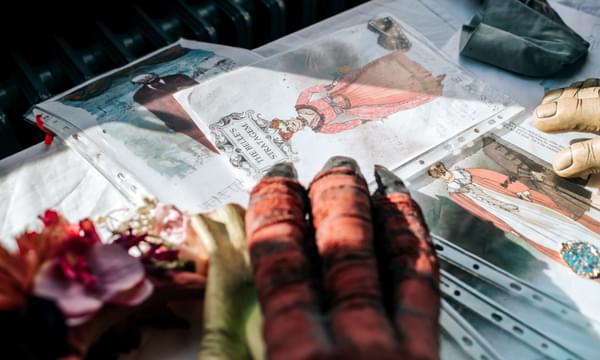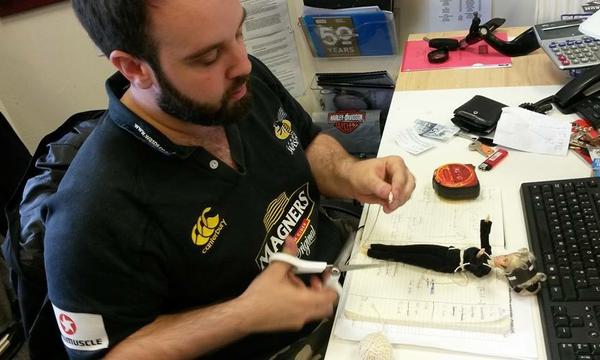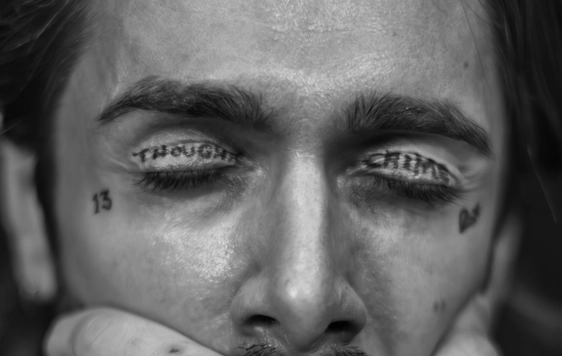News Story
It’s a new week and we are back at the development workshops for Macbeth (an undoing).
This time things are a little different, the workshops are taking place at the Royal Conservatoire in Glasgow and Zinnie has called upon a group of 3rd year acting and directing students to work with. The other difference for these workshops is that the development work is active, there is a square marked out on the floor to represent the stage space and the students are sat around it – when not acting they are the audience. This allows a different view of the piece, and we can see how it works on its feet opposed to simply reading through and pulling apart the language verbally.
These development workshops aren’t about directing something to perfection and creating exactly how it will be on stage, the workshops are about trying lots of different ways of a scene being performed so that in the rehearsal room, Zinnie has 20 different ways of doing each line and she can pick the best one for that moment.
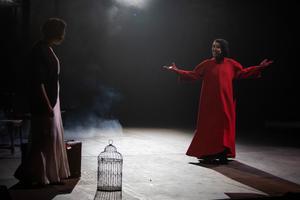
How was the day run?
The morning of the workshop was spent working through the script scene by scene and analysing as we went. Roles were assigned by the group, and we began from the beginning. Zinnie’s approach to working through was similar to the read through before, she asked the actors to read the lines and bring them to life in the performance space, she would stop at different moments and ask them questions about what has just happened from the viewpoint of the character, the context and audience response too. She would ask questions like:
- What is the motive and thought behind the lines that have just been said?
- What is it your character is trying to achieve by saying these lines? Why are they saying them?
- What energy is useful in this scene or for these lines in particular? What energy is your character bringing? What has happened before this moment so what is being brought onto stage?
- What is your relationship with other actors and the space on stage? What does this say to the audience?
- What is the emotional temperature in the scene and how does that build? How can you keep things active between scene changes when characters are swapping?
- What do the words mean to you? What could they mean to someone else? How are you interpreting the emotion in the scene?
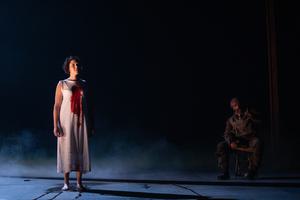
After the group have discussed what was heard/seen from the perspective of the actors and the audience watching we would re-run the scene with those ideas in mind. Has that changed how the scene is portrayed? The scene can end up being run multiple times if Zinnie feels like she still wants to see more.
One activity that was repeated throughout the morning was asking the actors to play the scene how they initially thought it would be shown, then asking them to flip that on its head and do the opposite of what might feel natural. This can help discover new ways of being angry or sad or evil. Not only can you change your energy in the scene, but also do you change how much movement the character does, how the scene starts, how the characters position themselves on stage.
Remember: A play is a journey; make sure you run scenes all together don’t just work individually as they need to make sense as a story.
Changing your approach
So much can tell your audience what to think and feel in that moment, how do we make Shakespeare more naturalistic? Zinnie’s adaptation has a lot more moments of realism and finding those moments was an interesting process for the students in the room. Macbeth (an undoing) is written alongside Shakespeare's original text it can feel, to a performer, that they need to read as a Shakespearian actor, but most of the time, Zinnie asks the opposite. A direction Zinnie gave that I found interesting, was asking the actors to perform for themselves not for the room. It is an instinct of an actor to make sure that they are performing to the audience (obviously) but what happens when the moments that we expect to be big and outward become intimate and inward for the characters. Moments of subtle gesture, facing each other, talking naturalistically...these moments have a huge sense of realism, they pull the audience in and make really engaging moments of theatre.
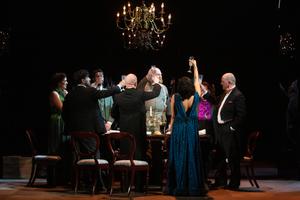
Using an audience
Being in the audience when watching work being developed isn’t an opportunity to have a rest and a break. When you are in the space you are constantly engaged, writing notes and participating in conversation. Developing work isn’t between the person reading and the writer/director, it is a collaborative process. It can also be useful to have multiple people playing a role during the development or analysis of a script, you will all bring something different to a role and interpret things differently, this can help to find other ways of showing moments that you or the writer/director may not have thought of.
It is a common thought that a play doesn’t get an audience until it is on the stage – this isn’t true, when you are in a space working as a group, those not performing are the first audience. You want to know how an audience will respond to a scene or a line, use those in the space.
So, what now?
This was the last development workshop for Macbeth (an undoing). The last chance for Zinnie to see her work and play around with how it might look and sound onstage. The group discovered kinks that needed smoothing out within the logistics of scenes, they questioned characters choices and structure, they even asked what the purpose of specific moments were and if they were even necessary. This may seem daunting to a writer to go into a space and have their work dissected but if you ask any professional writer, they will tell you that it is these workshops that really help shape their play and make it what we see on the stage.
Following the workshop, Zinnie will go away and write another (yes another) draft of the script ready to have pre-rehearsals with the actors playing the Macbeths in a couple weeks (don’t worry - I will take you to those too).
Following the progression of this script from draft 1 to draft 3 through these workshops it is so clear to see how helpful and crucial they are to the development of a piece. If you are writing a play, share it with people around you – there is nothing like hearing your words aloud to make you notice things that you would have if you were reading it alone in your head. If you are an actor and you get a chance to participate in a development workshop – do it! It is the most interesting and creative space to be in.
